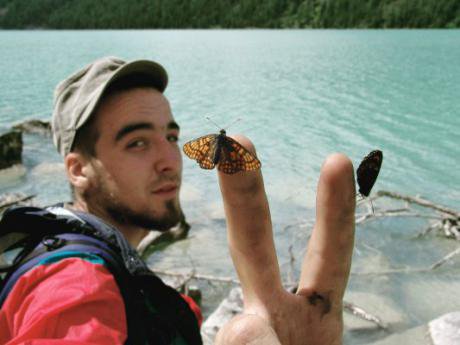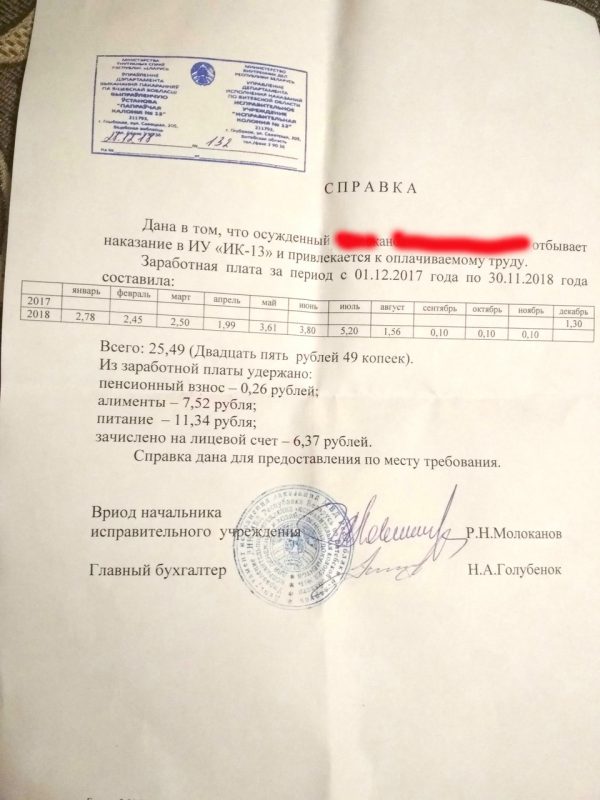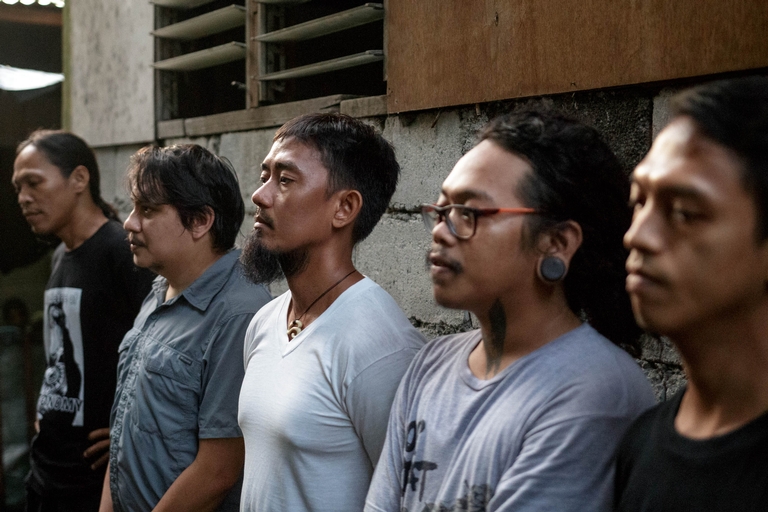Since October 2017, 11 people have been arrested as part of the “Network” case – a terrorism investigation led by the Russian security services into anti-fascists and anarchists. According to investigators, these men were allegedly members of an organisation that planned to “destabilise the political climate in the country” during the Russian presidential elections and Football World Cup via explosions and riots. Cells of the organisation were allegedly operating in Moscow, St Petersburg, Penza and Belarus.
Several of the men detained have reported that the FSB tortured them into confessing to the charges against them. For example, software engineer Viktor Filinkov, who was abducted from St Petersburg Pulkovo airport in January 2018, has described in detail how he was tortured with electric shocks into learning a false confession in a minivan on the outskirts of the city. Arman Sagynbayev, who previously ran a vegan food business, has stated that he underwent similar torture in November 2017 in St Petersburg. Other people detained as suspects and witnesses in this case have also reported brutal torture.
Yuly Boyarshinov, an antifascist, industrial climber and “free market” organiser from St Petersburg, was arrested on 21 January 2018. Boyarshinov later stated that city police officers beat him after he refused to answer their questions, citing his right not to incriminate himself. Four hundred grams of gunpowder were then discovered in his possession. On 23 January, a district court ordered his arrest for 30 days on a explosives possession charge. Boyarshinov was then visited by two FSB agents, who listed the names of defendants in the “Network” case and promised that if he did not talk, it “would get worse”. After he refused to talk, he was transferred to Pre-Trial Detention Centre No.6 at Gorelovo, in the outskirts of St Petersburg. On 11 April 2018, Boyarshinov was officially accused of being a member of a terrorist organisation.
In total, Boyarshinov spent five months in Gorelovo Pre-Trial Detention Centre — throughout this time, the FSB tried to make him confess to the charges against him. In a publication by Russian media outlet MediaZona, he describes the atmosphere of isolation, violence and doom in the prison.
Detainees in Gorelovo Detention Centre are subject to systematic physical violence and humiliations by other prisoners, who carry out the orders of the prison administration. Those prisoners call themselves “elders” or “seniors”, but other prisoners call them “reds” or “activists”.
These same people extract money from detainees for individual places to sleep, places next to the television, the right to sleep during the day and other “privileges”. For example, in Cell 3/14, I had to sleep in a twin-bed with four more prisoners. And in Cell 1/2, where I was from 1 March 2018 until 20 July 2018, I had to sleep either on the floor or the top bunk of a double bed with two, three, four more people.
More than a half of all prisoners in the cell do not have their own sleeping place, but this is not only due to overcrowding. In Cell 1/2, which has room for 116 people to sleep, there usually were 120-140 people, sometimes even 150. But, regardless of the overcrowding, there were always free beds in the “Kremlin”.
The “Kremlin” is a large space, separated by a curtain, where the “activists” live. In Cell 1/2, three or four people occupied 12 sleeping places in the “Kremlin”, while at the other end of the same cell regular prisoners had to share a twin bed between five people.
More than a half of all prisoners in the cell do not have their own sleeping place, but this is not only due to overcrowding
A new arrival into the cell is met by “orderlies”, usually sporty young men. They shout at the newbie to run to the other side of the cell, then tell him to stand there and wait until he is called. The prisoner acting as a clerk writes down the new prisoner’s personal details: his name and surname, date of birth, charge/conviction and prison term (if he already has one). In Cell 1/2, as in many others, both convicted prisoners and those under investigation are detained together. People who are first-time prisoners and “second-timers”, as well as people who are facing charges of different severity, are all mixed together. When I was in Cell 1/2, there were detainees investigated under Articles 105, 111, 126, 127, 131, 132, 134, 135, 158, 159, 161, 162, 163, 205, 222, 228, 264, 210 and others.
The new arrival is forced to wait standing from anywhere between 20 minutes to one and a half hours, without talking to anyone. Then he is called to the “kitchen”, which is a small room at the far end of the cell, where no one is normally allowed in. This is where the “activists” eat, and a designated person cooks food for them on a stove throughout the day. Fresh meat and eggs are brought to them in a soup tureen.
Yuly Boyarshinov. Source: David Frenkel / MediaZona. Two or three “activists” talk to the newcomer in the kitchen, explain to him that one has to pay 5,000-10,000 roubles [roughly £60-£110] a month for a separate bunk, sometimes they extract a one-off payment for “moving in” – tens of thousands of roubles [up to £500]. If he refuses [to pay], they shout, hit him in the stomach or the back of the head. They threaten to beat his buttocks or heels with a stick, but this they do rarely in order to avoid leaving traces.
They also force the newcomer to clean the floor, sometimes non-stop, four or five times per hour from lunch until dinner, and then from dinner until lights-off. They threaten that if a prisoner cleans the floor, this will affect his social status and later he will be forced to do that permanently in the correction colony. In other words, cleaning is turned into a humiliating punishment.
Those who face charges under Articles 131-135 of the Russian Criminal Code [crimes related to sexual violence] are forced to clean the latrines, wash clothes for the “seniors” and pay much higher sums of money.
Sometimes, as an alternative to monthly payments, the “activists” propose these detainees become a “helper” – that is, to serve one of the “activists”, wash their clothes, bring food to the “Kremlin”, put up the curtain that separates the “Kremlin” from the rest of the cell and take it down when it’s likely that prison guards may visit, although they don’t remove it in the presence of the regular guards responsible for the block.
When one of the “activists” goes to the toilet, the helpers kick out everyone from there in advance, roughly 10 minutes or so before. The same happens if one of the “activists” takes a shower. There is no hot water in the first and third blocks. The water for “activists” is warmed up with an immersion heater in a big barrel – a designated person has to look after it the whole day. Only “activists” can wash with hot water.
Regular prisoners are only allowed to use one lavatory out of three in the toilet, two others are reserved for the “elders”. Because of that and the fact that they close the toilet so often, there was always a queue of four-five people there.
There are two “clerks” in Cell 1/2. These are the prisoners who read both in- and outgoing letters of other prisoners and check that nobody complains to their relatives about violations in the cell. They can block a letter or order you to cross out particular sentences. You are not allowed to put letters in the letterbox yourself. The clerks also sign to receive letters, sometimes also for food parcels and shopping for other detainees. They also pass statements and requests to detention centre officials. Almost all interactions with the guards, including during the morning inspection, are mediated by the clerks and elders, and you are prohibited from addressing [the guards] directly, which creates isolation and a sense of doom.
Yuli Boyarshinov and defense attorney Olga Krivonos at a custody extension hearing, 19 February 2018. Source: OVD-Info / Olga Krivonos. I was beaten up several times: on the day I moved in to Cell 3/14, on the first day in Cell 1/2, and on the second day there too, and on the several more occasions from time to time when I was called in for a “conversation” in the kitchen. These “conversations” usually happened after my lawyer applied to transfer me to another cell or complained about the conditions of my detention and so on.
From the first day, I was told that “this can’t be solved with money” and that there was a special request on me from Ivan Prozarevsky, an agent, to create especially difficult conditions for me.
The first few months I was forced to clean the floor non-stop, then slightly rarer after that. During my whole time in Gorelovo I was barely allowed out to exercise, only a couple of times per month.
After I applied to be transferred to a non-smoking cell, I was called in to the kitchen. Two “activists”, Roman and Konstantin Makarov (“Makar”), were there. They said that they would not allow me to be transferred to another cell and that I now had to have a photo taken while holding a cigarette. I didn’t want to do it, Roman tried to persuade me and then threatened me with violence. From time to time, Denis Rymov, a “senior”, entered the kitchen. He shouted at me, threatened me and hit me several times on the face with an open hand and then left. This “conversation” lasted for about an hour and a half, then Denis entered again and said that if I didn’t take the photo with a cigarette he would rape me , record it on video and send it to the [prison] colonies. Kostya stood beside me and held me down, while Denis put his hand on my crotch and asked “Are you ready?” – after which I agreed to take the photo.
In Cell 1/2, I was forced to write a statement confirming that I was not subject to any pressure on at least three occasions. The first note was dictated to me by Konstantin Makarov, who was told to do so by agent Prozarevsky. The second note I wrote in Prozarevsky’s office after the detention centre received a collective letter from citizens concerned with conditions of detention in the prison. Prozarevsky didn’t show me the letter itself, he only gave me a list of approximately 180 names and instructed me to copy them into my note, and confirm that I did not know any of them and that I was not under any pressure in my cell.
This was not true at all. One of the “seniors”, Dmitry Smirnov, was in the room with us. Prozarevsky and Smirnov threatened that if I did not write this statement, they would create unbearable conditions not only for me, but also for my cellmates – for example, they would take away all mobile phones and shoelaces, thus aiming to provoke violence against me from other detainees. I had to write the third note when Prozarevsky entered the cell, sat down in the “Kremlin” and called me in there. The prisoners who sleep near the “Kremlin” were forced to move to the other end of the cell, so that they could not see us. After me, a few more prisoners were called in to write explanatory notes.
The “activists” in Pre-Trial Detention Centre No.6 carry out the orders of prison officers who, in turn, can follow the orders of agents investigating detainees. They may instruct the “activists” to “burn” certain detainees: beatings, threats, endless cleaning – in general, they create unbearable conditions. They say openly that to stop all of this, you have to give the required testimony in your case, “to solve the issue with your agents” – as it was in my case.
One evening, around eight or nine pm, I was called by agent Evgeny Vladimirovich and asked whether I would talk to the agents who were going to visit the detention centre the next day. I replied that I would, but only in the presence of my lawyer, after which I was sent to my cell and one of the “seniors” was called out. When he returned, he started shouting at me and forced me to do 1,000 squats. This punishment is used quite often, but usually only 500 times. After so many squats, one barely can move one’s legs for a week and it’s difficult to walk.
The basic conditions in Gorelovo are truly nightmarish: not enough space, around two square metres per person, overcrowded cells, a necessity to share the bed with many people, the lack of hot water, constant queues for the toilet and sink, one 12-seater table is used for 130-140 people, broken windows (prisoners break the glass during summer when it is too hot), so there is a cold draft for people sleeping on the top bunks during winter months. In winter, prisoners often sleep in coats.
But the hardest thing is surviving the atmosphere of isolation, systematic violence and the sense of doom. Often, “seniors” or “orderlies” are shouting at someone near you, threatening someone, administering beatings. It was routine to hear cries and pleas to stop from the “kitchen”, where somebody was being beaten on the buttocks or heels. It’s hard to avoid your fear of winding up in their place.
It was obvious that this didn’t happen on the initiative of individual “activists”, but an order from prison officers. Prisoners who try to complain or ask to be transferred to another cell are subjected to even more violence.
Various inspections and commissions often visit Gorelovo. When I was there from 1 March until 20 July 2018, approximately twice per month there was an inspection by the General Prosecutor’s Office, the human rights ombudsman or the Public Monitoring Commission. As a rule, they don’t find so many violations, because their visits are announced in advance, and an impression is created that there are no violations.
For example, before a visit from the Public Monitoring Commission, when they were planning to record the overcrowding of the cells, half of all prisoners (70 people or so) were taken out to exercise yard. Another time, the cell clerk simply lied to them, saying that there were 110 people in the cell, although there were many more. Before an inspection that was supposed to verify whether different categories of prisoners are kept separately, the “activists” announced at the morning check that if you were asked, you should reply that the cell held people who had not been previously convicted for serious offences. And everyone had to choose an appropriate article [of the Criminal Code]. During the day, the orderlies checked that.
If a detainee was called for a meeting with the Public Monitoring Commission or the representatives of the High Commissioner for Human Rights, “activists” had a “conversation” with him first, explaining that he could only say that “everything is alright in the cell”, that it was pointless to complain, and made threats. During any meetings with the Public Monitoring Commission in a separate office, the head of the centre’s operational section or deputy head of the detention centre would be present, and they would always tell the “elders” when the detainees said something bad about the cell.
[As a punishment] for complaints, detainees could be moved from a paid-for separate bunk to a five-persons bed, deprived of access to the telephone, beaten up or forced to clean the floor endlessly.
There was also a “tax” on parcels in Cell 1/2. The “activists” would take two packets of cigarettes from every block and a bag of sweets (cookies, chocolates).
In Cell 1/2, I got infected with scabies. I received the diagnosis in Pre-Trial Detention Centre No.1 in Penza, where I was transferred from Gorelovo. Treating scabies requires the patient to be isolated, disinfection of your personal possessions, mattress, bedding and cell. Nothing of the sort is done in Gorelovo: people infect each other every day in the overcrowded cells. When I left Cell 1/2 in July, every second person in the cell was suffering from scabies and was scratching all the time. There was no treatment for scabies.
Officers investigating a case can threaten suspects with a transfer to Gorelovo. There, following investigator’s instructions, people under investigation are pressured in order to force them to give evidence necessary for the investigation.




